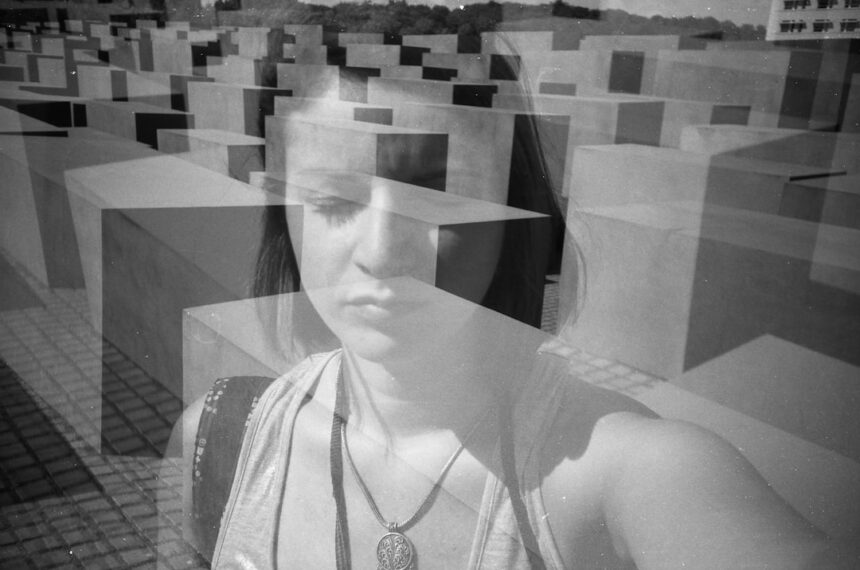Postpartum derealization and depersonalization are psychological phenomena that can occur after childbirth, often leaving new mothers feeling detached from their surroundings or even from themselves. Derealization refers to a sense of unreality regarding the external world, where everything may seem foggy, distant, or dreamlike. On the other hand, depersonalization involves a feeling of disconnection from one’s own body or thoughts, as if you are observing yourself from outside.
These experiences can be disorienting and frightening, especially during a time that is supposed to be filled with joy and bonding. You may find that these feelings can arise suddenly and without warning, often triggered by the overwhelming nature of new motherhood. The emotional and physical demands of caring for a newborn can lead to heightened stress and anxiety, which may exacerbate feelings of derealization and depersonalization.
Understanding these conditions is crucial for recognizing that you are not alone in your experiences and that help is available.
Key Takeaways
- Postpartum derealization and depersonalization are mental health conditions that can occur after childbirth, causing feelings of detachment from reality and oneself.
- Symptoms of postpartum derealization and depersonalization may include feeling like the world is unreal, experiencing a sense of being outside of one’s body, and having difficulty connecting with emotions.
- Common triggers for postpartum derealization and depersonalization include sleep deprivation, hormonal changes, and overwhelming stress.
- Hormonal changes, such as fluctuations in estrogen and progesterone levels, can contribute to the development of postpartum derealization and depersonalization.
- Postpartum derealization and depersonalization can impact mother-child bonding, making it important for affected individuals to seek support and treatment.
Symptoms and Signs of Postpartum Derealization and Depersonalization
The symptoms of postpartum derealization and depersonalization can vary widely from person to person. You might experience a persistent feeling of being disconnected from your thoughts or body, as if you are merely an observer in your own life. This can manifest as a sense of numbness or emotional flatness, making it difficult to engage with your baby or enjoy the moments that should be cherished.
You may also notice that your perception of time feels distorted; minutes can stretch into hours, or vice versa. In addition to these feelings, you might encounter physical symptoms such as dizziness, lightheadedness, or a racing heart.
It’s essential to recognize these signs early on, as they can significantly impact your ability to care for yourself and your child. Acknowledging what you are experiencing is the first step toward seeking help and finding ways to cope.
Common Triggers for Postpartum Derealization and Depersonalization

Several factors can trigger postpartum derealization and depersonalization, often intertwining with the challenges of new motherhood. One common trigger is sleep deprivation, which is almost inevitable in the early days of caring for a newborn. Lack of sleep can impair cognitive function and emotional regulation, making you more susceptible to feelings of detachment.
You may find that even small stressors feel magnified when you are exhausted, leading to an increased likelihood of experiencing these dissociative symptoms. Another significant trigger can be overwhelming emotions, such as anxiety or sadness. The transition to motherhood can bring about a whirlwind of feelings, from joy to fear and everything in between.
If you are struggling with postpartum depression or anxiety, these emotions can intensify feelings of derealization and depersonalization. It’s important to identify your triggers so that you can develop strategies to manage them effectively.
Understanding the Impact of Hormonal Changes on Postpartum Derealization and Depersonalization
| Participant Group | Number of Participants | Prevalence of Postpartum Derealization | Prevalence of Postpartum Depersonalization |
|---|---|---|---|
| Postpartum women with hormonal changes | 100 | 30% | 25% |
| Postpartum women without hormonal changes | 100 | 10% | 8% |
The hormonal fluctuations that occur after childbirth play a crucial role in postpartum mental health. After giving birth, your body undergoes significant changes in hormone levels, particularly estrogen and progesterone. These hormonal shifts can affect your mood and emotional stability, potentially leading to feelings of anxiety or depression.
You may find that these changes contribute to the onset of derealization and depersonalization, as your brain struggles to adapt to the new hormonal landscape. Moreover, the interplay between hormones and neurotransmitters can create a perfect storm for mental health challenges. For instance, serotonin levels may fluctuate during this period, impacting your overall sense of well-being.
Understanding this connection between hormonal changes and mental health can empower you to seek appropriate support and treatment options tailored to your needs.
How Postpartum Derealization and Depersonalization Can Affect Mother-Child Bonding
Experiencing postpartum derealization and depersonalization can significantly impact the bond between you and your child. When you feel disconnected from yourself or your surroundings, it becomes challenging to engage fully with your baby. You might struggle to respond to their needs or feel emotionally distant during moments that should foster closeness.
This detachment can lead to feelings of guilt or inadequacy as a mother, compounding the distress you may already be experiencing. The bond between mother and child is crucial for healthy development, both emotionally and physically. If you find yourself struggling with these feelings, it’s essential to recognize that seeking help is not only beneficial for you but also for your child.
By addressing your mental health concerns, you can work toward rebuilding that vital connection and creating a nurturing environment for your baby.
Coping Strategies for Managing Postpartum Derealization and Depersonalization

Implementing coping strategies can be instrumental in managing postpartum derealization and depersonalization. One effective approach is grounding techniques, which help anchor you in the present moment. You might try focusing on your senses—what you see, hear, smell, touch, or taste—to reconnect with reality.
Simple exercises like taking deep breaths or counting objects in the room can also help bring you back to the here and now. Another helpful strategy is establishing a routine that incorporates self-care practices. Prioritizing sleep, nutrition, and physical activity can significantly impact your mental health.
You may also benefit from mindfulness practices such as meditation or yoga, which promote relaxation and self-awareness. Finding time for yourself—even if it’s just a few minutes each day—can help alleviate feelings of overwhelm and foster a sense of control over your experiences.
Seeking Professional Help for Postpartum Derealization and Depersonalization
If you find that coping strategies are not enough to alleviate your symptoms, seeking professional help is a vital step toward recovery. Mental health professionals can provide support tailored specifically to your needs, whether through therapy or medication management. Cognitive-behavioral therapy (CBT) has been shown to be effective in treating derealization and depersonalization by helping you reframe negative thought patterns and develop healthier coping mechanisms.
You might also consider joining support groups where you can connect with others who have experienced similar challenges. Sharing your story in a safe environment can foster healing and provide valuable insights into managing your symptoms. Remember that reaching out for help is a sign of strength; it demonstrates your commitment to both your well-being and that of your child.
The Role of Social Support in Managing Postpartum Derealization and Depersonalization
Social support plays an essential role in managing postpartum derealization and depersonalization. Surrounding yourself with understanding friends and family members can create a safety net during challenging times. You may find comfort in sharing your experiences with loved ones who can offer empathy and encouragement.
Their presence can help alleviate feelings of isolation that often accompany these conditions. Additionally, engaging with other mothers who have faced similar struggles can provide validation and reassurance. Support groups—whether in-person or online—can foster connections that remind you that you are not alone in this journey.
Building a network of support allows you to share coping strategies, resources, and experiences that can aid in your recovery process.
Addressing the Stigma and Misconceptions Surrounding Postpartum Derealization and Depersonalization
Addressing the stigma surrounding postpartum derealization and depersonalization is crucial for fostering understanding and compassion. Many people may not be familiar with these conditions, leading to misconceptions about what they entail. You might encounter individuals who dismiss your experiences as mere “baby blues” or who suggest that you should simply “snap out of it.” Such responses can be invalidating and may discourage you from seeking help.
Raising awareness about postpartum mental health issues is essential for creating an environment where individuals feel safe discussing their experiences without fear of judgment. By sharing your story or educating others about derealization and depersonalization, you contribute to breaking down barriers and promoting understanding within your community.
Tips for Partners and Loved Ones of Individuals Experiencing Postpartum Derealization and Depersonalization
If you are a partner or loved one of someone experiencing postpartum derealization or depersonalization, there are several ways you can offer support. First and foremost, listen without judgment; allow them to express their feelings openly without fear of criticism or dismissal. Your understanding can provide immense comfort during this challenging time.
Encouraging them to seek professional help is also vital; gently suggest therapy or support groups if they seem open to it. Additionally, offering practical assistance—such as helping with household tasks or caring for the baby—can alleviate some stressors that contribute to their symptoms. Your presence and support can make a significant difference in their journey toward healing.
Finding Hope and Healing: Stories of Recovery from Postpartum Derealization and Depersonalization
Finding hope amidst the challenges of postpartum derealization and depersonalization is possible through stories of recovery from others who have faced similar struggles. Many women have shared their journeys toward healing, highlighting the importance of seeking help, building support networks, and implementing coping strategies. These narratives serve as powerful reminders that recovery is achievable.
You may find inspiration in stories where individuals have transformed their experiences into opportunities for growth—learning more about themselves while fostering deeper connections with their children. By embracing vulnerability and sharing their journeys, these women not only empower themselves but also inspire others facing similar challenges to seek help and find hope in their own paths toward healing. In conclusion, postpartum derealization and depersonalization are complex experiences that many new mothers face but often go unrecognized.
By understanding these conditions better—along with their symptoms, triggers, impacts on bonding, coping strategies, professional help options, social support roles, stigma challenges, partner tips, and stories of recovery—you can take proactive steps toward healing for yourself and fostering a nurturing environment for your child. Remember that seeking help is not only okay but necessary; it’s a vital part of reclaiming your sense of self during this transformative time in your life.
Derealization and depersonalization are complex psychological experiences that can occur postpartum, affecting new mothers as they navigate the significant changes and challenges of early motherhood. These experiences can manifest as feelings of detachment from one’s surroundings or a sense of being disconnected from one’s own body and thoughts. For those seeking more information on this topic, an insightful article can be found on Unplugged Psych, which delves into the nuances of these conditions and offers guidance on managing them. You can read more about it by visiting this unpluggedpsych.
com/’>link.
LEARN MORE About Unmasking the Mysteries Behind Depersonalization and Derealization
FAQs
What is derealization and depersonalization?
Derealization is a mental health condition where a person feels detached from their surroundings, as if the world around them is unreal. Depersonalization is a similar condition where a person feels detached from themselves, as if they are observing their own actions from outside their body.
What are the symptoms of derealization and depersonalization?
Symptoms of derealization and depersonalization can include feeling like the world is foggy or dreamlike, feeling disconnected from one’s own body or thoughts, and experiencing a sense of unreality or detachment from the environment.
How common are derealization and depersonalization postpartum?
Derealization and depersonalization can occur in the postpartum period, although they are not as commonly discussed as other postpartum mental health issues such as postpartum depression or anxiety.
What are the risk factors for experiencing derealization and depersonalization postpartum?
Risk factors for experiencing derealization and depersonalization postpartum may include a history of anxiety or panic disorders, traumatic childbirth experiences, and hormonal fluctuations during the postpartum period.
How are derealization and depersonalization postpartum treated?
Treatment for derealization and depersonalization postpartum may include therapy, medication, and self-care strategies such as stress management and mindfulness techniques. It is important for individuals experiencing these symptoms to seek support from mental health professionals.




